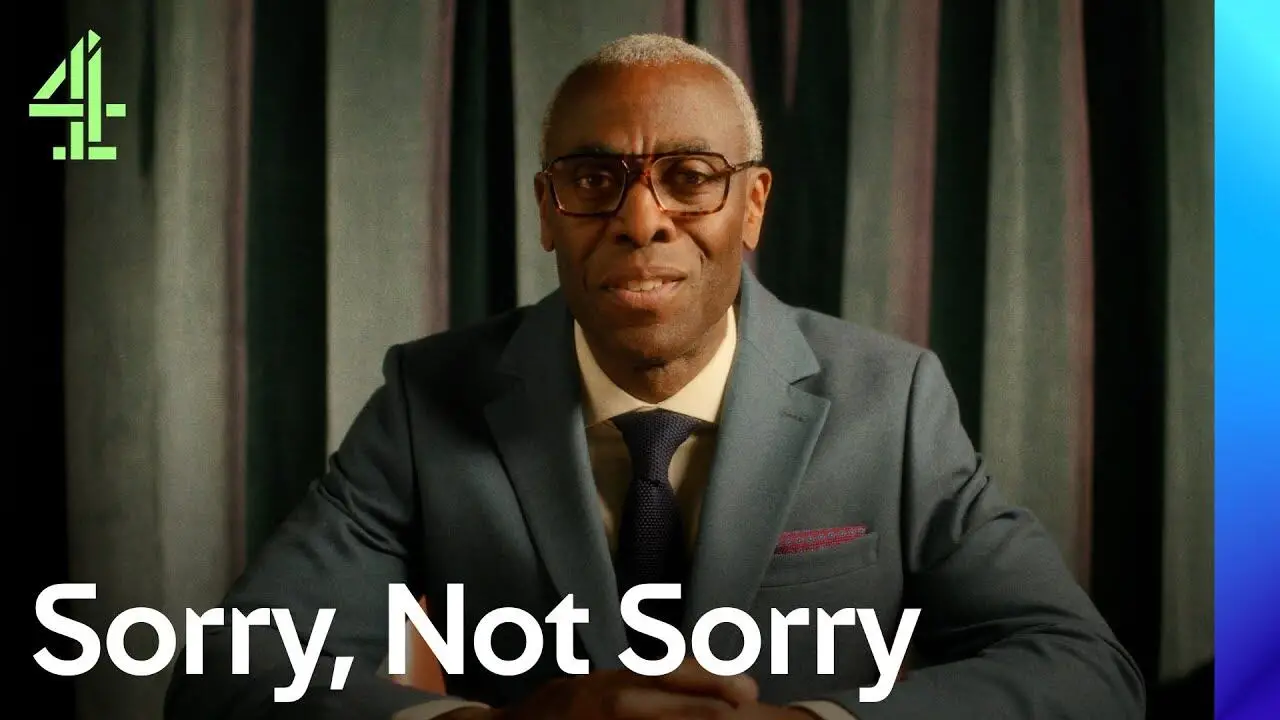The must-have for comms leaders: Business acumen
Knowing the business of language isn’t enough. You have to know the language of business. Joe Carberry is a partner at Breakwater Strategy. David J. Chamberlin is the managing director of the strategic Ccmmunications advisory team at Orrick. With AI adoption racing forward, communications leaders face a massive transformation. Core activities like press releases and […] The post The must-have for comms leaders: Business acumen appeared first on Ragan Communications.

Knowing the business of language isn’t enough. You have to know the language of business.
Joe Carberry is a partner at Breakwater Strategy. David J. Chamberlin is the managing director of the strategic Ccmmunications advisory team at Orrick.
With AI adoption racing forward, communications leaders face a massive transformation. Core activities like press releases and research are increasingly being handled by AI-driven tools. These tools can make our work better and more efficient. That is the power of innovation.
But communications leaders should avoid simply viewing AI as an existential threat. Rather, it’s an opportunity to refocus on a strength of our field: great business-oriented counsel. While AI is making great strides, it is not perfect. And as long as humans run businesses and buy products, there will be value in humans driving the communications process with judgment and experience.
That requires both understanding how communication creates business value and the right mindset to deliver it. More than ever, communications teams will be judged by their ability to drive growth, mitigate risk and build trust – outcomes that boards and management teams think about every day. So more than ever, we need to think like businesspeople first and communicators second.
From wordsmiths to business strategists
Our profession has come a long way. We are still expected to be great writers, know the right reporters and react quickly to a crisis. But we are now consistently seen as stewards of reputation and engagers of stakeholders. In addition, we are increasingly counted on to be fluent in politics and policy; know the law, understand HR policies and recite the company’s share price. The successful communications leader must be an integrator of perspectives across the business. No small feat.
But there is an even higher calling.
We are most valuable to organizations when we approach our roles as business leaders – in addition to being communications leaders. When communicators think like business leaders, we focus on driving measurable results. We look beyond comms outputs, like number of stories, and apply strategic communications in the company’s value chain to improve outcomes. We focus on how our work adds customers, lowers litigation risk or aligns our workforce. We ask questions like: “how do we overcome a sales objection?” or “would this convince regulators we are part of the solution?”
As former CCOs, orienting our activities towards business outcomes has long been the north star in our roles. But with all that lies ahead – AI, fractured media landscapes and complex operating environments – we believe that business leadership moves from aspiration to necessity.
Honing your business leadership
The further along a communicator is in their career, the more they are counted on to be a trusted advisor in the room — applying judgment, understanding nuance, and navigating complex human debates. That’s where business-fluent communicators shine.
But that kind of fluency requires communicators to learn the fundamentals of business and understand how and where their work adds value to their organization’s strategy. That means deepening acumen across three key areas in particular:
- Communicators need to understand income statements, balance sheets and cash flow statements. They should grasp metrics like EBITDA, working capital and return on investment. This knowledge allows them to see what business pressures are driving executive decisions and how communication investments can be justified financially.
- Understanding the company’s entire value chain – from procurement to customer delivery – reveals where reputation risks emerge and where strategic communication creates value. Communicators should know their organization’s key performance indicators, understand capacity constraints, and how external factors affect operations.
- Businesses operate in complex ecosystems. We must understand customer motivations, what influences investor sentiment, regulatory dynamics and what drives employee engagement. Each stakeholder has distinct – sometimes conflicting – interests. Effective communicators map their work to address these underlying motivations.
Fluency in these areas requires a commitment to building one’s knowledge and exposure over time. In its simplest form, it starts with being curious about the business, asking questions about actions and implications as far upstream as possible in the decision-making process.
The best communication leaders go further by embedding themselves in their business. They sit with customer care, join product reviews, attend sales QBRs, walk factory floors and talk to stakeholders. These encounters reveal opportunities and challenges early. They show what levers that communications can — and can’t — employ. That builds valuable expertise at the intersection of a business and stakeholders. That expertise can then be shared with their teams to expand fluency further in the function.
Business acumen separates communications technicians from communications leaders. When communicators can speak intelligently about these areas – connecting dots across the business, like a CEO – they are in a better position to help influence company actions with an eye towards building and protecting reputation.
Integrating business and reputation strategy
Management teams have always sought sound advice to aid critical decisions. Savvy communications leaders bring perspectives to the table that shape messaging, build reputation and influence business outcomes. The emergence of AI tools does not threaten that role. In fact, with the power of AI behind us – our role as strategic counselors becomes even more important, especially when we can root it in business outcomes.
This is the opportunity we see for tomorrow’s communication leaders. Adopt (or renew) a mindset that embraces the changes coming our way. Show up every day as a businessperson with deep communications expertise. And help organizations take the steps necessary to earn trust in a world that increasingly doubts what it hears. That’s what today’s companies need right now. And it is the future of our profession.
The post The must-have for comms leaders: Business acumen appeared first on Ragan Communications.

























![Brand and SEO Sitting on a Tree: K-I-S-S-I-N-G [Mozcon 2025 Speaker Series]](https://moz.com/images/blog/banners/Mozcon2025_SpeakerBlogHeader_1180x400_LidiaInfante_London.png?auto=compress,format&fit=crop&dm=1749465874&s=56275e60eb1f4363767c42d318c4ef4a#)

![How To Launch, Grow, and Scale a Community That Supports Your Brand [MozCon 2025 Speaker Series]](https://moz.com/images/blog/banners/Mozcon2025_SpeakerBlogHeader_1180x400_Areej-abuali_London.png?auto=compress,format&fit=crop&dm=1747732165&s=beb7825c980a8c74f9a756ec91c8d68b#)
![Clicks Don’t Pay the Bills: Use This Audit Framework To Prove Content Revenue [Mozcon 2025 Speaker Series]](https://moz.com/images/blog/banners/Mozcon2025_SpeakerBlogHeader_1180x400_Hellen_London.png?auto=compress,format&fit=crop&dm=1747758249&s=9f3c5b1b7421f862beace1cb513053bb#)






















![The 11 Best Landing Page Builder Software Tools [2025]](https://www.growthmarketingpro.com/wp-content/uploads/2024/04/best-landing-page-software-hero-image-1024x618.png?#)







































![How to Create an SEO Forecast [Free Template Included] — Whiteboard Friday](https://moz.com/images/blog/banners/WBF-SEOForecasting-Blog_Header.png?auto=compress,format&fit=crop&dm=1694010279&s=318ed1d453ed4f230e8e4b50ecee5417#)
![How To Build AI Tools To Automate Your SEO Workflows [MozCon 2025 Speaker Series]](https://moz.com/images/blog/banners/Mozcon2025_SpeakerBlogHeader_1180x400_Andrew_London-1.png?auto=compress,format&fit=crop&dm=1749642474&s=7897686f91f4e22a1f5191ea07414026#)
























![Brand pitch guide for creators [deck and email templates]](https://blog.hootsuite.com/wp-content/uploads/2022/06/brand-pitch-template.png)


![8 ways to use AI in digital marketing [+ examples]](https://www.hubspot.com/hubfs/Google%20Drive%20Integration/ai%20marketing_32023-4.png)
















![Instagram hashtags: How to find best hashtags for Instagram [+ list]](https://media.sproutsocial.com/uploads/2023/07/Instagram-hashtags-how-to-find-and-use-the-best-hashtags-Final.jpg)




